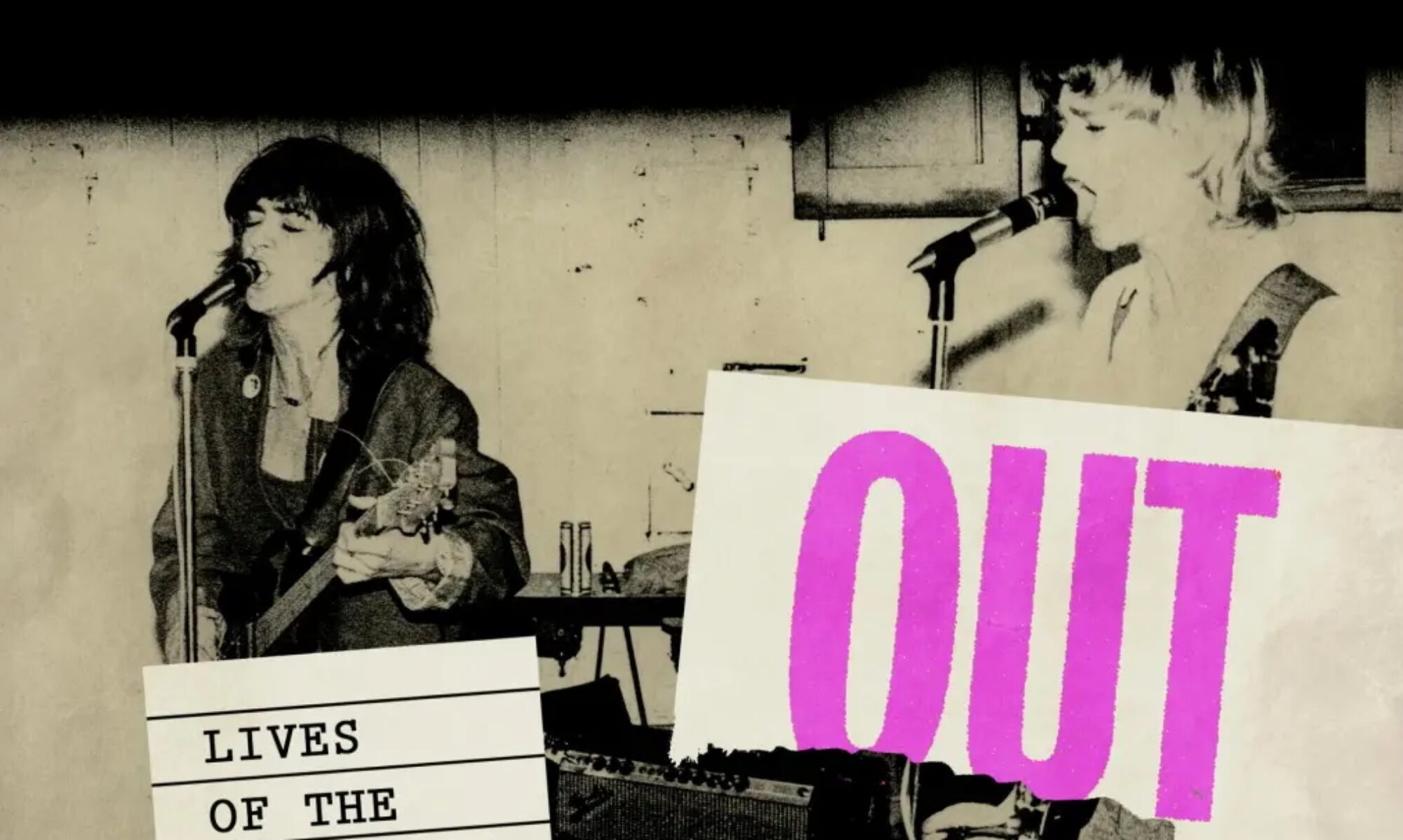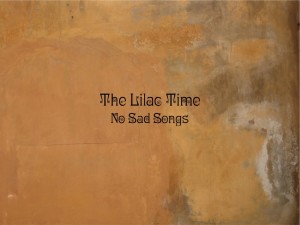we interviewed mr duffy for chickfactor 14 back when both of us lived in london, but as his group the lilac time are about to release a new album called no sad songs, we figured it was time to catch up! most of you know him but if not, some fun facts: he was the original singer for duran duran. he spent a few years as robbie williams’ music director. he was in new york city around the time of 9.11 to play a chickfactor party and we were very grateful that A. the show went on and B. he let us write the set list (his presence there at that time was oddly comforting!). he’s been writing beautiful “flower music” for like 30 years. he’s currently somewhat recently become happy, married, a dad and a resident of cornwall. we asked him a few questions to find out what’s been happening.
chickfactor: tell me about no sad songs. was there a theme or aesthetic you were trying to achieve with this record?
it was a sprawling 20+ song mess of aesthetic revolution until I realized that a double album would never get finished. It was without beginning, middle or end in whatever order jean-luc godard would have put them. I just picked the ten I thought I could pull together and finish without crying or without blowing up the house. by chance the ones I picked seem to tell the story of us as a family and musical group going as far west as you can go, in the united kingdom, without discovering america. the song “the western greyhound” vaguely encapsulates the story.
Lyrics:
We took the Western Greyhound
Down the Atlantic Highway
And that’s when we found
Our way home
For on a clear day
You can make out something
We all believed in
Something good…
Now in the dead of winter
Can we make a beach head
In the desert
Of our dreams
I saw a sign in heaven
Bohemia forever
Another dream of wonder
How wonderful to dream.
we grew up in a time when people believed in things and in more than things. In 1978, when I left school, the gap between rich and poor in the UK was at its narrowest. was revolution possible? the counterculture’s lineage from beat to hippy to punk wasn’t expected to just bail. but instead we were blessed with the never-ending ’80s, the revenge of the ’50s. and governments that want to bury us back into the ’30s. So this album is about nurturing that “little flame among the ashes” like all the others. that’s the light we work by.
how has your approach to songwriting changed over time?
the first good song I wrote was “aztec moon,” which was released, eventually, on the devils’ dark circles record in 2002. I wrote it in 1978 just before I went to art college in birmingham and started the durans with john and nick. I was 17 and had just read jack kerouac’s mexico city blues for the first time and was filled with inspiration and wonder and I stood in my bedroom in birmingham and sang. I was amazed that I had written a song that sounded like a song. over the years and I mean perhaps decades, I tried to get to a more completely personal lyrical style, but now almost 40 years later all the songs sound personal, the choice of literary thievery becomes as personal and as poignant as a faded family snap shot. It becomes the story of your life!
how has your relationship with music changed in the 30 years(!) you’ve been making records?
I suppose my relationship with music has remained the same and the same as everyone else. you hear something and you love it and get excited. you get filled with righteousness or foolishness and sing and dance in the kitchen or discotheque.
I’d listen to records and then go upstairs and play my bass and try to channel whatever it was. even when I’d had hits and made albums I’d do the same kind of thing. I watched a little don’t look back every day before going to record the eponymous lilac time album.
and I still have massive fads and buy everything by people, fill in gaps, get obsessive. I watched travelling for a living, the watersons documentary from the ’60s and immediately I was on eBay buying vinyl and listening to nothing else, telling the band we were going to have record exactly like them. not that they listen to me anymore.
my relationship with the music business in comparison isn’t as jolly. having made my first record in 1979 seymour stein and sire gave me dance hits in 1983—amazing. I had a pop hit in the UK in 1985—scary—and then from 1987 the lilac time “I swore to write but poetry and live upon a hill”— POETRY!
and yet I still get angry with the guys who, when the compact disc was invented, invited us into their luxury offices and told us “you make the software and we’ll make the hardware.” the guys, and they always were blokes, who already didn’t have a clue when I signed to WEA in broadwick street in 1982, but still have well-paid jobs now, even though they are the ones who sold out to apple and iTunes knowing we wouldn’t make a penny. and then gave away everything to the streamers. they didn’t even sell the family silver—they just gave it away.
is being happy a good way to feel while trying to make a record?
I have no idea why I became depressed and I had years of great therapy that was very helpful and even inspiring. maybe melancholy is in you from birth and something pushes it to the fore at some point. illnesses do make people feel special. when I was first prescribed antidepressants and realised I was looking forward to going to the supermarket that this meant I was leaving my cage of specialness, my great palace of sadness and that I could not only become normal but even gormless. I was “if I cant be successful at least I can be depressed.”
this was an incentive to make this recording. to address how miserable the last few lilac time records had been. we all like a happy ending, right? but equally I’m not sure what really made me not depressed. but then I got married and had a daughter, we are—as the ramones said clearly—a happy family and looking after a family, putting them first, doing what that involves, cooking, cleaning, was a first for me, domesticity hadn’t really happened in my first 50 years. I don’t know if putting others first is what killed the depression? for I’d have taken just not being depressed, happiness didn’t come into it.
also, and by the by, accurate checking for vitamin D didn’t arrive until 3 or 4 years ago and I was virtually without any. since then I have been well and truly shot up with Mr D. I wonder if nick drake and other great depressives could have been checked what great music we would have been deprived of and what happy lives they may have lived.
why has it taken seven years since you’ve put out an album?
runout groove, the last album, disappeared faster than most of my records. I hadn’t realised how things had changed since releasing keep going, which had at least paid for itself. With runout groove I committed us to playing shows, with a six-piece lilac time and crew, at the green man festival and queen elizabeth hall, that we filmed and recorded (for the film memory & desire). the film shows me slowly realizing things perhaps weren’t going to plan. I obviously came back from california thinking I was neil young or someone. so after that I decided we’d just to record for ourselves and never play again. then we found ourselves all in cornwall playing in the basement and it didn’t feel that different to ’87 and the first album. then I suppose that egomaniacal desire to share our greatness reappeared.
tell us about the folks who contribute to this record. who did what? how did the process go in the studio?
it’s just me, claire, nick and melvin. all duffys but melvin not so directly related. melvin: steel guitar. claire: keys, strings and vocals. nick: instruments people mock. and me on guitar, bass and drums. it’s the first record I recorded songs and then changed everything, retaining perhaps only the original mandolin. so perhaps it was a little more worked on or considered or something, but it wasn’t laboured, it was revelatory.
will you tour/play shows to mark the record’s release?
we’re playing the port eliot festival on the 2nd of august as a trio.
what do you think is the best role of songwriter in 2015 society?
I can only talk personally but I’d have to say saviour of brutalist architecture and flower child.
has living in cornwall had an effect on the way you write songs?
it’s good to be somewhere so far away from london and everywhere else. apart from when you need to be in london or somewhere else and then you’re miles away. but it’s good to be somewhere so far away.
what happened to the other 10 songs you recorded since moving there? will they be released?
yes, it should be lilac10, the next album. at the moment it’s called the second post. we also have a rarities collection I’m slowly compiling and a live album that just needs mastering. we’re going to reedit and retitle the film memory & desire, adding some new stuff and older stuff that’s turned up and generally cheering it up a bit. and as always, there’s the book I’ve been writing since 1979, boxes and boxes of it, I’d like to finally finish it or some of it and add the thousands and thousands of pictures to make something lovely. because lovely is where it’s at, gail.
photograph courtesy of the lilac time. the album is out on tapete records on april 2.


